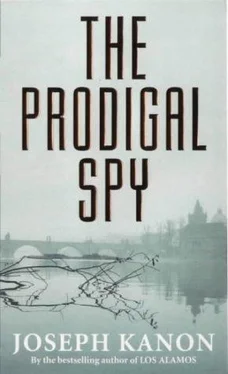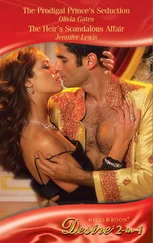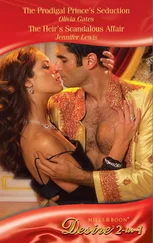A clink, something hard. He worked the pen around and hit it again. Impossible to bring it up like this. He reached in with two fingers and pushed the ash aside, searching for the round cylinder. Then he felt it, smooth. He drew it out, careful of the ash, and looked at it. A piece of bone. He dropped it back in the ash, his stomach jumping, then took the pen again and poked more frantically. Another piece of bone. Once more through the ash, knowing now that it wasn’t there but unable to stop. No film. His father hadn’t told her. It’s here, he’d said, tapping his head.
Nick took the pen out, covered with ash, feeling sick. Then he looked at his fingers, covered the same way, dirty with it, and ran to the bathroom and held his hand under the running tap until the smudges washed away, coloring the water like faint gray blood. He stood against the basin for a moment, breathing hard, ashamed. His hands in it, digging, like a grave robber.
But the list had to be somewhere. His father hadn’t intended to rely on memory. He knew they’d want more. There just hadn’t been time to get it. Nick went to the desk again, staring at the urn as he screwed the top back on. Bury it somewhere he liked. The country house. A formal name for a simple cabin. Reproduced here, a private place away from the prying world. Of course. Not with another Anna Masaryk, around the corner. But there wouldn’t have been time for a run to the country. He’d have to leave without it. So it must still be there, waiting to be found. Where? Nick felt the pricking at the back of his head. Simple, if you knew him. People don’t change. And if he was wrong? A wild goose chase. But with no other options, it was worth, at least, a try.
He left Molly a note-‘back later, don’t worry’-and rushed out of the room. He’d have to hurry to get back before dark. He ran down the stairs, making a plan-could he lose the watchdogs in the back streets? — so that he missed the expression on the desk clerk’s face when he asked him to call the garage.
“But the police have the keys, Pan Warren. There is some problem with repairs, I think. Were you planning to leave Prague?”
Nick imagined for a second the clerk’s hand on the phone, ready to send out the alarm.
“No, no,” he said quickly. “It’s just the trams. I suppose I can take a taxi.”
“Of course. Shall I call for you?”
“I’ll find one,” Nick said vaguely. Why had he thought they’d let him go? He stood in the middle of the lobby, knowing the desk clerk was watching him but unable to move. There had to be a way. In America there would be fleets of rental cars and drivers for hire, but movement was a luxury here, the great privilege in a country under house arrest. He thought of Jeff, tearing easily through Prague with his close-shaven Marine. Who else?
His eyes scanned the room and stopped at the entrance to the bar, where Marty Bielak was already perched on his stool. Who would want to stay closer? His legman, tempted with a scoop.
“I need to ask a favor.”
“Shoot.”
“It’s just that I don’t know anyone else to ask.”
“What can I do for you?”
“I need to borrow a car. Just for a few hours. I’ll pay for the gas. Mine’s in for repairs.”
Bielak looked at him, waiting for more.
“I need to get something. You know Walter Kotlar was my father.”
Bielak said nothing, too interested to pretend he hadn’t known.
“He wanted me to have something. You know, a memento. But it’s in the country, and I don’t have any way to get there. Would you mind? I’d really appreciate it.”
“I’ll take you,” Bielak said, almost eagerly.
“You don’t have to do that.”
“No, I do. See, over here-you’re a foreigner. We can’t lend-” He paused, apologetic.
“You wouldn’t mind?”
“I’m just taking up space here. Let me get this.” He put some money on the bar. “Sorry to hear about it, by the way. To go that way. Sad. Must be hard for you.”
“Yes.”
“Well, I’m sorry.”
“At least I got to see him again. That’s something, anyway.”
“Why didn’t you want anybody to know? If you don’t mind my asking,” he said, collecting the change.
“He didn’t want it. He was afraid-you know, if the press got hold of it. He wanted it to be just family.”
“I heard he was sick.” Bielak hesitated. “Is that why he did it?” A trial balloon for the party line.
Nick nodded. “I suppose. I don’t know.”
“No. We never do, do we, when they go like that. Not really.”
“No, not really.”
Bielak got up from the stool. “What did he leave you, anyway? That we’re going to pick up. If you don’t mind my asking.”
“What? What would he have left? ”The Order of Lenin,“ Nick said, leaving Bielak, for once, with no reply.
Outside, he saw the tails come to attention, their faces registering surprise at Bielak’s appearance.
“Listen, I think you should know that the police have been following me since he died. I mean, I don’t want to get you in any trouble.”
“Don’t worry about it,” Bielak said easily. He looked at Nick seriously. “Your father was a hero. What do they know? Traffic cops.” Nick caught the tone: rival agencies, then, not colleagues, like the squabbling offices in the embassy. Who did Bielak work for? It occurred to him, a grisly irony, that he had inadvertently picked the perfect chauffeur, the only way he could ever have left Prague without an escort.
“How far is it?” Bielak asked.
“Out past Theresienstadt.”
“Oh, nice,” Bielak said. “The country, I mean.”
What Nick hadn’t counted on was that Bielak would want to talk, using the long drive as a pretext for a fishing expedition, casting for information. Nick’s life. His father’s health. And after a while Nick began to welcome the distraction, so preoccupied with shaping his answers, the careful feints, that he had no time to think about what really concerned him, what he would do if the list wasn’t there. A wasted trip. But it had to be. All of it had to be true. Everything he’d said.
The questions told him something else-Bielak hadn’t known about him before, which meant his superiors hadn’t known either. The connection had come out with the death, surprising them as much as the police, the unexpected son. His father had been careful right up to the end. The order to kill had come from somewhere else.
They fell behind a convoy of trucks, back flaps open to reveal sitting rows of soldiers. When the road opened out to a long stretch, Bielak beeped his horn and passed, waving to them as he pulled in front.
“Russians?” Nick said.
“And Poles. Some Hungarians. They’re here for the Warsaw Pact maneuvers.” Did he really believe it?
“You never see them in town. I thought they’d be everywhere. You know, since-”
“The invasion?” Marty said, almost playful. “That’s what they call it in the West. Some invasion. See for yourself. You notice they never say NATO troops have invaded Germany. They’re guests. Only the Russians are occupiers. But the Americans stay and the Russians go home when the maneuvers are over. So where’s the occupation, Germany or here? It’s always the same. Don’t believe everything you read in the papers.”
“No. So when do they go home?”
“When the Government asks them to. Right now it’s useful. We could use a little order. Things go too far. These kids-they play right into the hands of the capitalists, and they don’t even know it. Your father understood. That’s why he came last year, to help out.”
Nick froze. “Help out how?” he asked quietly.
“Well, the Czechs wouldn’t look at a Russian cross-eyed. But a Czech-American with a Czech wife? He could talk to anybody.”
Читать дальше












